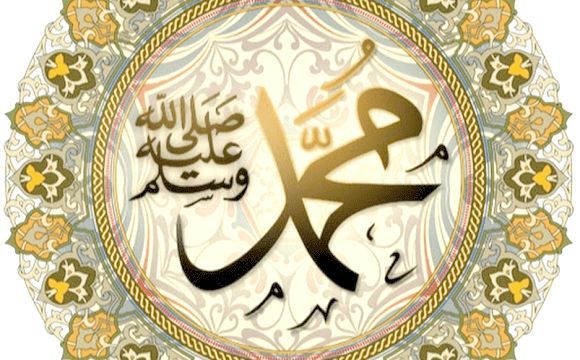By Asif Husain ,Goa
The only state in India that boasts of Uniform Civil Code has been proclaimed as an ideal state when it comes to gender justice. Tall claims by quite a few eminent men of law leaves little room for a sound discussion and debate on the subject and its impact on family life in Goa.
The state is held high by the votaries of Uniform Civil Code and the burdened silence of Muslims in Goa and including others gives them the added courage to shout down those who oppose the UCC.
An impartial look at the ground realities and focussing on Muslims let us try to see if it has caused pain or ease to families that had to go through the court to address and resolve the differences that came up in marital life and family disputes.
Few facts that need to be kept in mind are the reality of the difficulty of finding the right match by the parents across communities. The process of finding the right boy or girl and the right family is tedious and involves a lot of hardships for the families. It does take years if not months to get the marriage fixed. After adopting all the means to check and reassure that the choice is right we have many instances where fights between couple start immediately.
But before we go into that let us delve into another problem faced by Muslims as well as others.
The registrations of marriages in Goa are not just registration but also solemnization. Among Muslims in Goa though they do abide by it because it helps them in documentation required for travel and fulfilment of routine legal requirements they consider the “Nikah” as the only legal means of Marriage and Masjid Committee conduct the Nikah but only if the party produce the civil registration certificate. But natural, the civil procedure precedes the Nikah. Here I need to mention that family matters are always personal and people do not divulge family matters in public. So after the civil registration a date is fixed for the Nikah. It is common knowledge that during this intervening period between civil marriage and Nikah either the boy or the girl develops a change of heart and decides against going ahead with the formal and legal wedding “nikah”. In such cases they then have to wait for the cancellation which is actually seeking civil divorce and going through the divorce process to get married to any other individuals of their choice because the marriage has already been solemnised at the marriage registrar’s office. This waiting period can extend from a minimum of 18 months (rarely) to years. In this case what should the boy and the girl do because they cannot get married unless the legal tangle is sorted? Here we also have to remember that nowadays the age of marriage is pretty late and borders around 24 – 26 for a girl and with every passing year thereafter the chances of getting a spouse becomes difficult. This is not an ideal situation but the ground reality. So this waiting period of cancellation when in the eyes of the Muslim law they are not yet husband and wife but according to civil law they are this creates big problems for both the boy and the girl and their families. Their marriage prospects diminishes and the emotional trauma unbearable in the waiting period. This legal compulsion of waiting opens the door to many other vices related to the physical needs of the young people.
The second case assumption of the problem is similar but here the discord and differences occur after marriage , both the civil marriage and the “nikah” ceremony and the only option for separation in spite of all the counselling sessions and with no hope of reconciliation, is divorce through the courts. I had mentioned that family matters are private and hence the suffering is borne in silence and hidden from public glare. As this process of divorce begins along with the accusations and counter accusations and by the time the order of divorce comes both the parties are so bitter that none would want to get married and even if they want to get married it would be too late. For a women who gets married at 27 and the process of divorce say begins at 29 and by the time she gets the divorce after all the battles would be anywhere between 8 to 10 years if not more. At 39 the chances of starting life again is very bleak. Similarly if the couple or the girl is below 25 and let us assume 22 while appealing for a mutual divorce he or she or they cannot do it unless they are 25 years of age. Why should a marriage that is dead and both the parties cannot live with each other be forced for such an unnatural long wait for separation?
There are countless such couples along with their parents who are doing the rounds of the courts with dates after dates and money spent on legal services and whose cases are pending in courts and who cannot move forward and start fresh with a new spouse.
Since these matters are private they hardly get reported and understood by people .Only those families whose daughter or son are involved in the divorce process know the agony that one goes through. The years of suppression under the Portuguese regime has built the tolerance level of Muslims in Goa and are silently suffering the emotional thorns of the Uniform Civil Code in Goa. The votaries of the UCC code also need to know that in the garb of being gender just the UCC actually plays against the interests of both the genders but more against the women and it has burdened the courts with complicated and impracticable laws that have been discarded in the country where it originated.
Even if we assume that the court does order maintenance the men has many means to delay the payment and take the matter right up to the Supreme Court and the order received of a paltry sum after years of litigation arrives when there is no longer any need for it. This is not just the issue of Muslims but women of all communities face the burden of making rounds of the courts to get their husbands to pay-up which is hardly forthcoming in most cases.
It is common knowledge that Christian women are given some gold in exchange they are asked to sign of their rights to family property .Should not all such cases be studied impartially and a report be published for better understanding of the impact of UCC?
Under the Sharia Law the women retains her right to her property and business interests even after marriage unlike UCC in Goa where after marriage both husband and wife become joint owners. Moreover the financial burden under Sharia law is on the man and not women.
Another question that comes to my mind is whether the UCC is biased in favour of the Christian Community in Goa? Do the Christians of Goa enjoy the freedom of following their personal laws? Advocate Albertina Almeida, a campaigner for women’s rights points out that in the case of those who opt to solemnise their marriage in church, the Church can annul the marriage at the instance of one of the parties, as is laid down in church law. Do the Hindu men still have the freedom to a second wife and the Muslims and Christians do not? The “customs and usages” of the Hindus of Goa is recognised and allows “Limited” polygamy. The issue of adoption too is not equal. Is it not a fact that the Portuguese civil laws are far from equal and uniform?
Though Islam dislikes divorce it has kept the door open for those in a marriage that does not give them solace, tranquillity and happiness to go through the process after reasonable time has been given for reconciliation and process of separation kept simple and natural.
(Author is an active social worker And member of Jamate Islami Hind)
















